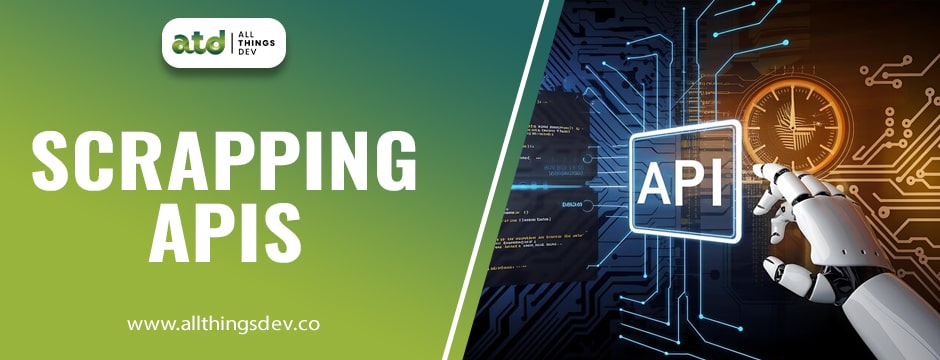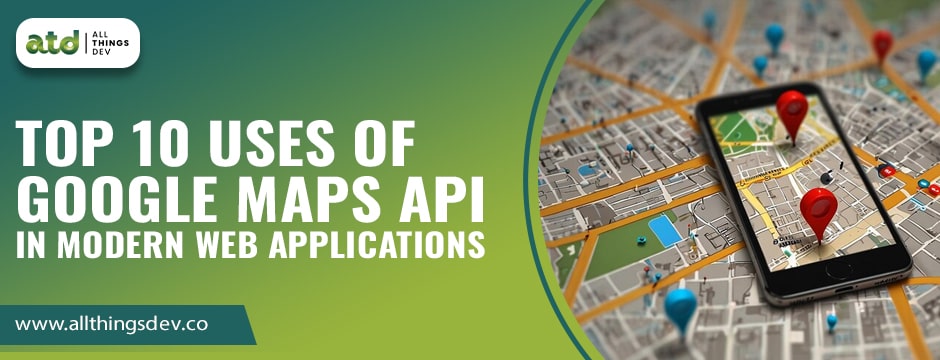Top 10 Uses of Google Maps API in Modern Web Applications
Deepak Blog Google Maps API, google translate api, Scrapping APIs 0
Google Maps API has transformed the way for developers to create applications by integrating dynamic maps, geolocation, and rich geographical data into their projects. With its extensive functionality and ease of use, it is a powerful tool for enhancing the user experience. In this blog, we will explore the top 10 uses of the Google Maps API in modern web applications and how businesses and developers can leverage its capabilities for various purposes.
1. Location-Based Services
One of the primary uses of the Google Maps API is to offer location-based services. Businesses can utilize this feature to help users find nearby stores, restaurants, or services based on their current location. For example, a restaurant app can be used it to display nearby dining options. It allows users to explore and navigate to their favourite places. This enhances the user experience and encourages customer engagement by providing personalized recommendations.
2. Real Estate Applications
Real estate websites and applications leverage the Google Maps API to provide users with interactive maps that display available properties. Users can filter listings by various criteria, such as price, size, or location. Additionally, integrating satellite imagery and street views helps potential buyers visualize the neighbourhood and assess property values. This functionality not only enhances user engagement but also makes the decision-making process more informed and efficient.
3. Travel and Tourism Apps
Travel applications use the Google Maps API to create immersive experiences for users. By integrating maps with travel itineraries, users can visualize their journey, view points of interest, and explore attractions nearby. Features like route optimization, distance calculation, and travel time estimations help users plan their trips effectively. Additionally, tour operators can use the API to provide interactive maps of tour routes to enhance the overall travel experience.
4. Logistics and Delivery Tracking
In logistics and delivery applications, the Google Maps API plays a vital role in tracking shipments and optimizing routes. Companies can provide real-time tracking of deliveries to monitor the customer order status. Additionally, the API helps businesses analyze traffic conditions, identify the fastest routes, and reduce delivery times. This leads to improved efficiency and customer satisfaction in the delivery process.
5. Event Planning and Management
Event planning applications can utilize the Google Maps API to help users find and navigate to venues. Whether it’s a concert, conference, or wedding, providing an interactive map allows attendees to locate the event location easily. Additionally, event organizers can showcase nearby hotels, restaurants, and attractions to enhance the attendee experience. By integrating Google Maps, event planners can streamline logistics and provide valuable information to guests.
6. Urban Planning and Development
Government agencies and urban planners use scrapping APIs to visualize geographical data and plan city infrastructure. By overlaying maps with demographic data, traffic patterns, and land use information, planners can make informed decisions about zoning, transportation, and resource allocation. This enhances collaboration among stakeholders and helps create smarter, more sustainable cities.

7. Fitness and Activity Tracking
Fitness applications often incorporate the Google Maps API to track users’ activities, such as running, cycling, or hiking. Users can view their routes on an interactive map, analyze performance metrics, and share their achievements with others. The API also allows users to discover new trails or workout routes in their vicinity to make fitness activities more engaging and enjoyable.
8. Emergency Services and Disaster Management
Google Translate API is invaluable for emergency services and disaster management applications. First responders can use the API to access real-time information about incidents, traffic conditions, and the locations of emergency facilities. This aids in efficient response planning and resource allocation during emergencies. Additionally, disaster management agencies can visualize risk zones and assess the impact of natural disasters for better preparedness and response strategies.

9. Social Networking and Community Engagement
Social networking platforms utilize Google Maps API to enhance user engagement by allowing users to share their locations and experiences. Users can check in at specific locations, share photos, and recommend places to others. This feature fosters community interaction and helps users discover new places based on their friends’ recommendations. Integrating maps into social networks enhances the overall user experience and encourages active participation.
10. E-Commerce and Product Mapping
E-commerce websites can use Google Maps API to provide location-based services, such as showing product availability in nearby stores. Users can search for products and view their locations on a map, helping them make informed purchasing decisions. Additionally, businesses can use maps to display delivery areas and track shipments in real time. This integration enhances the shopping experience and builds customer trust.
Conclusion
The versatility of the Google Maps API has made it an essential tool for modern web applications across various industries. From enhancing location-based services to facilitating urban planning, the API provides developers with the tools they need to create interactive and engaging experiences. By leveraging the capabilities of the Google Maps API, businesses can not only improve user satisfaction but also gain a competitive edge in their respective markets. Whether you’re developing a real estate platform, a travel app, or a fitness tracker, integrating the Google Maps API can significantly enhance functionality and user engagement. As technology continues to evolve, the possibilities for using the Google Maps API in web applications will only expand for developers and businesses.
Bring your web applications to life with AllThingsDev experts for a better user experience.

